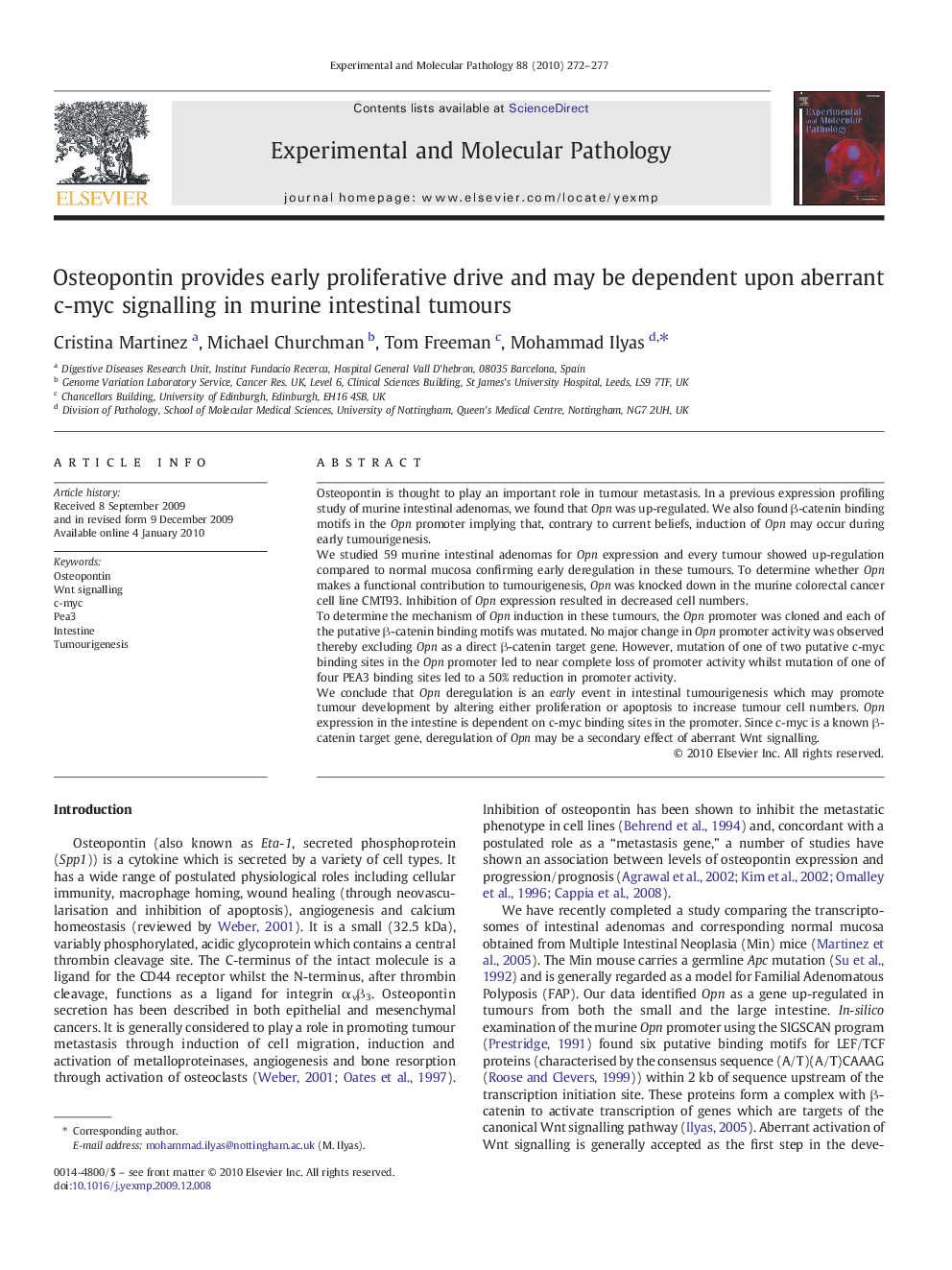| Article ID | Journal | Published Year | Pages | File Type |
|---|---|---|---|---|
| 2775550 | Experimental and Molecular Pathology | 2010 | 6 Pages |
Osteopontin is thought to play an important role in tumour metastasis. In a previous expression profiling study of murine intestinal adenomas, we found that Opn was up-regulated. We also found β-catenin binding motifs in the Opn promoter implying that, contrary to current beliefs, induction of Opn may occur during early tumourigenesis.We studied 59 murine intestinal adenomas for Opn expression and every tumour showed up-regulation compared to normal mucosa confirming early deregulation in these tumours. To determine whether Opn makes a functional contribution to tumourigenesis, Opn was knocked down in the murine colorectal cancer cell line CMT93. Inhibition of Opn expression resulted in decreased cell numbers.To determine the mechanism of Opn induction in these tumours, the Opn promoter was cloned and each of the putative β-catenin binding motifs was mutated. No major change in Opn promoter activity was observed thereby excluding Opn as a direct β-catenin target gene. However, mutation of one of two putative c-myc binding sites in the Opn promoter led to near complete loss of promoter activity whilst mutation of one of four PEA3 binding sites led to a 50% reduction in promoter activity.We conclude that Opn deregulation is an early event in intestinal tumourigenesis which may promote tumour development by altering either proliferation or apoptosis to increase tumour cell numbers. Opn expression in the intestine is dependent on c-myc binding sites in the promoter. Since c-myc is a known β-catenin target gene, deregulation of Opn may be a secondary effect of aberrant Wnt signalling.
